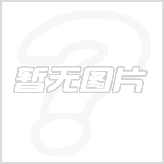2014年成人高血壓管理指南(JNC8)
《2014年成人高血壓管理指南(JNC8)》簡介:
(1)60歲以上人群的目標血壓為150/90mmHg,60歲以下人群目標值為140/90mmHg,包括糖尿病和腎臟病患者。
(2)噻嗪類利尿劑、CCB、ACEI和ARB四大類藥物作為初始治療藥物(一線治療藥物,黑人僅利尿劑與CCB),可單獨或聯合使用;β受體阻滯劑退出一線,降至四線,與螺內酯同等地位。
(3)新指南強調了達標和維持目標(長期達標)[The main objective of hypertension treatment is to attain and maintain goal BP].
(4)新指南不是那么強烈推薦起始聯合了[Some committee members recommend],而是“起始單藥再單藥加量”、“起始單藥再加第二種”、“起始兩種聯合”三種策略都可以。
(5)腎病患者首選RAS阻斷劑;糖尿病患者沒有優先推薦RAS阻斷劑,而是四種都可以;CCB減少卒中優于ACEI(中國的主要問題是卒中)。
《2014年成人高血壓管理指南(JNC8)》內容預覽:
Hypertension is the most common condition seen in primary care and leads to myocardialinfarction, stroke, renal failure, and death if not detected early and treated appropriately.Patients want to be assured that blood pressure (BP) treatment will reduce their diseaseburden, while clinicians want guidance on hypertension management using the best scientificevidence. This report takes a rigorous, evidence-based approach to recommend treatmentthresholds, goals, and medications in the management of hypertension in **s. Evidencewas drawn from randomized controlled trials, which represent the gold standard fordetermining efficacy and effectiveness. Evidence quality and recommendations were gradedbased on their effect on important outcomes.
點擊下載***:《2014年成人高血壓管理指南(JNC8)》
本站所注明來源為"愛愛醫"的文章,版權歸作者與本站共同所有,非經授權不得轉載。
本站所有轉載文章系出于傳遞更多信息之目的,且明確注明來源和作者,不希望被轉載的媒體或個人可與我們
聯系zlzs@120.net,我們將立即進行刪除處理
熱點圖文
-
嚴重顱腦損傷病人腸內營養支持有何特點?
嚴重顱腦損傷病人多存在神志異常、昏迷、躁動等,使之不能正常飲食,并給鼻飼置...[詳細]
-
嚴重顱腦損傷病人PN支持有何特點?
鑒于顱腦損傷后病人的特點,胃腸外營養常被選作早期營養支持的手段。[詳細]

